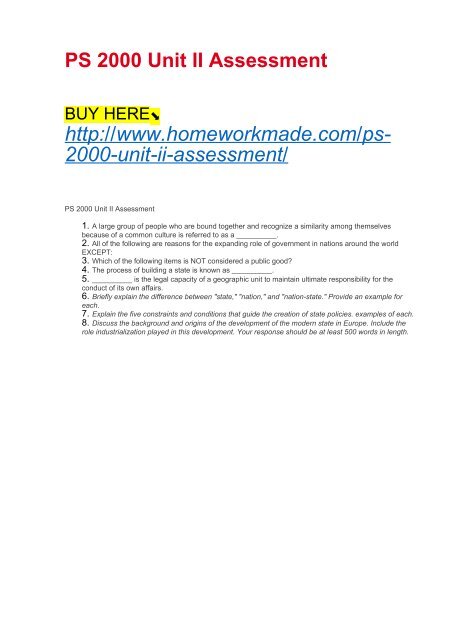You also want an ePaper? Increase the reach of your titles
YUMPU automatically turns print PDFs into web optimized ePapers that Google loves.
<strong>PS</strong> <strong>2000</strong> <strong>Unit</strong> <strong>II</strong> <strong>Assessment</strong><br />
BUY HERE⬊<br />
http://www.homeworkmade.com/ps-<br />
<strong>2000</strong>-unit-ii-assessment/<br />
<strong>PS</strong> <strong>2000</strong> <strong>Unit</strong> <strong>II</strong> <strong>Assessment</strong><br />
1. A large group of people who are bound together and recognize a similarity among themselves<br />
because of a common culture is referred to as a __________.<br />
2. All of the following are reasons for the expanding role of government in nations around the world<br />
EXCEPT:<br />
3. Which of the following items is NOT considered a public good?<br />
4. The process of building a state is known as __________.<br />
5. __________ is the legal capacity of a geographic unit to maintain ultimate responsibility for the<br />
conduct of its own affairs.<br />
6. Briefly explain the difference between "state," "nation," and "nation-state." Provide an example for<br />
each.<br />
7. Explain the five constraints and conditions that guide the creation of state policies. examples of each.<br />
8. Discuss the background and origins of the development of the modern state in Europe. Include the<br />
role industrialization played in this development. Your response should be at least 500 words in length.

















